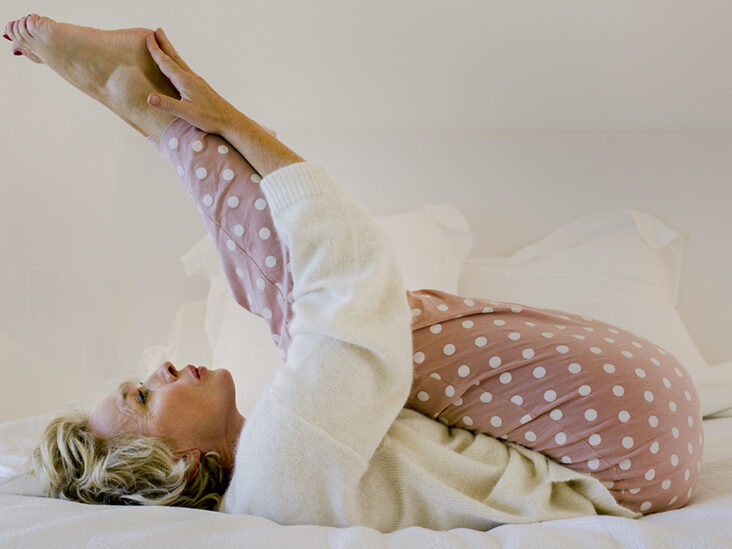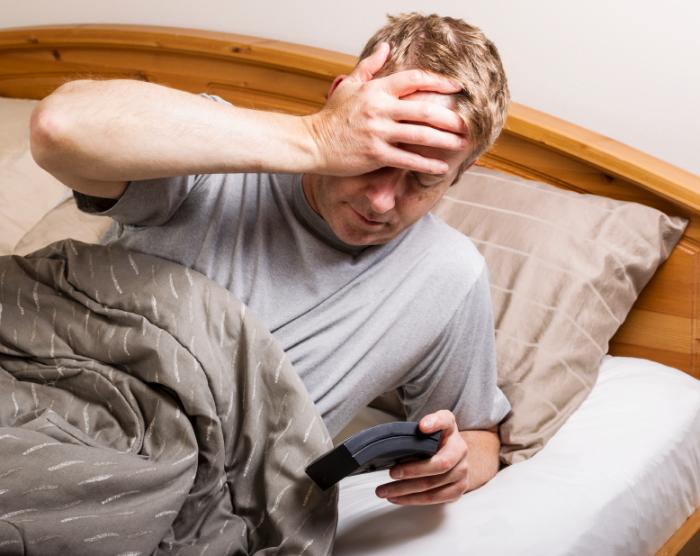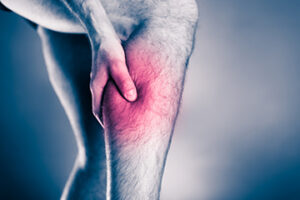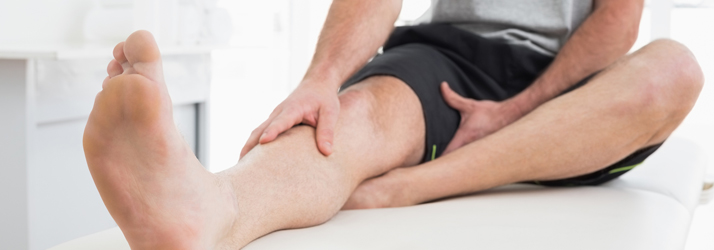Do you often have achy legs at night? If so, you’re not alone. Many people experience this type of pain, especially as they get older. But what could be the cause of it? In this blog post, we will discuss some of the most common causes of leg pain at night and what you can do to alleviate it.
Contents
What Do Achy Legs At Night Mean?
 Achy legs at night can be a sign of many different medical conditions. Some of the most common causes of achy legs at night are varicose veins, restless leg syndrome, and low blood pressure. If you are experiencing achy legs at night, it is important to see your doctor to determine the cause and get treatment if necessary.
Achy legs at night can be a sign of many different medical conditions. Some of the most common causes of achy legs at night are varicose veins, restless leg syndrome, and low blood pressure. If you are experiencing achy legs at night, it is important to see your doctor to determine the cause and get treatment if necessary.
This ailment also called “nocturnal leg cramps” can affect people of all ages, but is most common in those over the age of 50. While the pain can be severe, it is usually not a sign of a serious underlying condition. However, if you are experiencing achy legs at night on a regular basis, you should see your doctor to rule out any potential underlying causes.
There are many potential causes of achy legs at night. The most common cause is simple muscle fatigue from overexertion during the day. If you have been standing or walking for long periods of time during the day, your muscles may simply be tired and need to rest. This type of pain is usually not severe and will go away with rest.
This ailment also gives the sensation of “ants crawling” on or under the skin. This is caused by twitching muscles, which can be a symptom of restless leg syndrome (RLS). RLS is a condition that causes an irresistible urge to move the legs. The exact cause of RLS is unknown, but it is thought to be linked to iron deficiency, pregnancy, and certain medications.
There are many potential treatments for achy legs at night. If the pain is severe, your doctor may prescribe medication to help relieve the pain. For milder cases, simple home remedies may be all that is necessary.
Signs of Achy Legs At Night

There are many signs that may depict that you are experiencing achy legs at night. Some of these are:
Restlessness At Night
There may be restlessness t night that is caused by an achy feeling in the legs. This may make it difficult to fall asleep or stay asleep through the night.
Pain When Touching Legs
There may be pain when you touch your legs, especially if you press down on them. This can be a sign that there is inflammation in the muscles or joints. Sometimes there are also lumps or knots that can be felt.
Pain When Moving Legs
The pain may also worsen when you move your legs. This can make it difficult to get comfortable at night and make it hard to find a position that doesn’t aggravate the pain. It can also mean that you are less active during the day, as you don’t want to aggravate the pain further.
Swelling In Legs
Another sign of achy legs at night can be swelling in your feet or ankles. This may be due to fluid retention and is often worse later in the day. Sometimes there are many other symptoms that accompany the swelling such as redness, warmth, and pain. It may also be difficult to fit into your shoes.
Varicose Veins
If you have varicose veins, it may be more noticeable at night because the legs are elevated. This can cause swelling and aching in the veins. After this, there may be cramping, throbbing, or itching. There may be a brownish or bluish discoloration on the skin.
Causes of Achy Legs At Night

There are many causes of achy legs at night, and the most common cause is restless legs syndrome (RLS). RLS is a condition that causes an irresistible urge to move your legs. The exact cause of RLS is unknown, but it’s thought to be linked to an imbalance in the brain’s chemical dopamine.
Other potential causes of achy legs at night include:
Venous Insufficiency
This occurs when the valves in your veins don’t work properly, which can cause blood to pool in your legs and lead to pain. Sometimes there may be a visible blue or red rash on the skin. Sometimes there are no visible symptoms at all. Venous insufficiency is more common in people over the age of 50.
Peripheral Artery Disease (PAD)
This is a condition that narrows the arteries that carry blood to your legs and feet. PAD is caused by a buildup of plaque in the arteries, and it can lead to pain, cramping, or fatigue in the legs. PAD is more common in people who have diabetes or high cholesterol.
Compression Fractures
These fractures occur when the bones in the spine collapse due to pressure. This can happen with osteoporosis or cancer. Compression fractures can cause back pain that radiates into the legs. There maybe be a visible deformity in the spine.
Osteoarthritis
This is a type of arthritis that causes inflammation and stiffness in the joints. Osteoarthritis can affect any joint in the body, including the hips, knees, and ankles. The pain from osteoarthritis is often worse at night. It can also lead to swelling in the feet and ankles.
Pregnancy
Pregnancy can also be one of the causes of achy legs at night. This is because the extra weight and pressure of the baby on your veins can lead to venous insufficiency. Pregnancy can also cause joint pain and swelling in the feet and ankles.
Restless Legs Syndrome (RLS)
The most common cause of achy legs at night is restless legs syndrome (RLS). RLS is a condition that causes an irresistible urge to move your legs. The exact cause of RLS is unknown, but it’s thought to be linked to an imbalance in the brain’s chemical dopamine.
Symptoms of RLS include:
- An irresistible urge to move your legs
- Aching or crawling sensations in your legs
- An uncomfortable sensation in your legs that improves when you move them
There can be other causes of achy legs at night, but these are the most common ones. If you’re experiencing pain in your legs, be sure to talk to your doctor. They can help you find the cause and treat it accordingly.
Impacts of Achy Legs At Night

There are many impacts of achy legs at night. Some of these are:
Impacts Sleep
This pain may make it difficult to sleep through the night. It can also disrupt your normal sleep patterns, causing you to wake up frequently.
This can lead to fatigue during the day and make it difficult to concentrate or perform tasks.
Impacts Physical Activity
The pain may also limit your ability to participate in physical activity during the day. This can cause you to become more sedentary, which can lead to other health problems such as obesity and heart disease. It may also make it difficult to perform your usual activities of daily living.
Impacts Emotionally
The pain can also take a toll on your emotional well-being. It can cause anxiety and depression, and make it difficult to enjoy your life. It can also give an overall feeling of being unwell.
Impacts on Relationships
The pain can also affect your relationships. It can make it difficult to spend time with family or friends, and participate in activities that you enjoy. The chronic nature of the pain can also put a strain on relationships. This may have an impact on your work life as well.
Diagnosis of Achy Legs At Night
 If you are experiencing achy legs at night, it is important to talk to your doctor. They can help you determine the cause of the pain and develop a treatment plan. There are many potential causes of this pain, and only a trained medical professional can properly diagnose and treat the condition. So don’t suffer in silence, and make an appointment with your doctor today.
If you are experiencing achy legs at night, it is important to talk to your doctor. They can help you determine the cause of the pain and develop a treatment plan. There are many potential causes of this pain, and only a trained medical professional can properly diagnose and treat the condition. So don’t suffer in silence, and make an appointment with your doctor today.
The diagnosis can be dependent on the symptoms that you are experiencing. For example, if you have a fever and joint pain, you may have arthritis. If your legs feel heavy and fatigued, you may have a circulatory problem.
There are some physical diagnostic tests that may help in the diagnosis of achy legs at night. Your doctor may order blood tests, a magnetic resonance imaging (MRI) scan, or a computerized tomography (CT) scan to help them determine the cause of your pain.
Once the cause has been identified, treatment can begin. This may include medication, physical therapy, or surgery. It is important to follow your doctor’s instructions closely in order to get relief from your achy legs at night.
Treating Achy Legs At Night

There are many treatments available for achy legs at night. The best course of treatment will depend on the underlying cause of the pain. Some common treatments include:
Medications
Over-the-counter pain medications such as ibuprofen or acetaminophen can be effective in treating achy legs at night. If your pain is severe, your doctor may prescribe a stronger medication. These medications are sometimes used as a short-term solution while the underlying cause is being treated.
Rest
If your achy legs are due to overuse or fatigue, resting may be all you need to relieve the pain. Try not to stand or walk for long periods of time and take breaks often if you have to work. When you’re at home, try to relax with your feet up. It may have the added benefit of helping you sleep better.
Compression Stockings
If your achy legs are caused by circulation problems, your doctor may recommend wearing compression stockings. These stockings help improve blood flow and reduce swelling. Wearing them during the day can help relieve pain at night. There may be some initial discomfort when wearing compression stockings, but they should get more comfortable as your body adjusts to them.
Exercise
Regular exercise is important for overall health, but it can also help relieve achy legs at night. Exercise helps improve circulation and strengthens the muscles in your legs. If you’re not used to exercising, start slowly and gradually increase the intensity and duration of your workouts. These also have the added benefit of helping you sleep better.
Physiotherapy
Physiotherapy is also one of the best treatments for achy legs at night. A physiotherapist can help you identify and treat the underlying cause of your pain. They may also recommend exercises to improve circulation and strengthen your muscles. Physiotherapy may help to prevent future episodes of leg pain. It also gives a person a sense of control over their condition.
Home Remedies For Achy Legs At Night

There are many home remedies that may help to relieve the discomfort of achy legs at night. Some simple self-care measures include:
Applying Heat or Ice
Applying heat or ice always has an analgesic (pain-relieving) effect. Heat works by dilating the blood vessels, which allows more oxygen and nutrients to reach the area. This will help improve circulation and reduce inflammation. Ice packs work by constricting the blood vessels and reducing inflammation. It may also help to numb the area and reduce pain.
Elevating The Legs
Elevating the legs above the level of the heart can help to reduce swelling and discomfort. It is important to do this for at least 15 minutes per day. Gravity helps blood flow from the lower extremities back to the heart. This will help to reduce congestion and inflammation. This home remedy is especially helpful if you are pregnant.
Stretching The Legs
Stretching the legs before bed can help to improve circulation and reduce discomfort. Some simple stretches include:
- Hamstring stretch: Sit on the floor with one leg bent, pull the other hamstring towards your buttock until you feel a stretch in the back of your thigh. Hold for 30 seconds then switch legs.
- Quadriceps stretch: Stand up tall, holding onto something for balance if needed. Bend one knee and grab your ankle or foot and pull it towards your buttock. You should feel a stretch in the front of your thigh. Hold for 30 seconds then switch legs.
- Calf stretch: Place your hands against a wall, step forward with one leg and bend your front knee. Keep your back leg straight and heel pressed against the floor. You should feel a stretch in the back of your calf. Hold for 30 seconds then switch legs.
Avoiding Caffeine
If you will avoid caffeinated beverages close to bedtime, it may help to improve your sleep and reduce discomfort. Caffeine is a stimulant that can cause anxiety and restlessness. It can also worsen symptoms of restless leg syndrome. Try to avoid coffee, tea, energy drinks, and chocolate after dinner.
Exercising Regularly
Regular exercise has many benefits, including improved circulation and reduced inflammation. Exercise also helps to promote healthy sleep habits. Aim for 30 minutes of moderate-intensity activity most days of the week. Some examples include walking, swimming, biking, or light jogging. If you are new to exercise, start slow and gradually increase your activity level over time.
Taking Breaks At Intervals
If you are taking regular breaks throughout the day to move your legs, it may help to reduce discomfort. Try to take a few minutes every hour or so to walk around and stretch your legs. This will help improve circulation and prevent stiffness.
Massaging Legs At Night
When you will massage your legs at night, it will help improve blood circulation. Use a light circular motion and massage from your ankles to your upper thighs. This can be done with your hands or with a massaging tool like a foam roller. If you massage your legs before going to bed, it will help you to sleep better and reduce discomfort.
Changing Your Diet
Changing your diet will always help you to feel better. If you want to improve your condition, you should avoid foods that trigger inflammation, such as processed meats, dairy products, and fried foods. Try to eat more fruits and vegetables, which are high in antioxidants and anti-inflammatory compounds. Fish oil supplements may also help to reduce inflammation.
Avoiding Smoking
Smoking often makes symptoms worse. It can cause inflammation and damage the blood vessels. If you smoke, it is important to quit. There are many resources available to help you quit smoking for good. It may be difficult, but it is worth it for your health.
Avoiding Alcohol
Alcohol also makes symptoms worse. It can cause inflammation and disrupt your sleep. If you drink alcohol, try to limit yourself to one or two drinks per day. It may also give an idea to avoid alcohol close to bedtime.
Resting Enough
Getting enough rest is essential for good health. If you are not getting enough sleep, your body will be more prone to inflammation and pain. Try to get at least seven hours of sleep each night. Establish a regular sleep schedule and avoid using electronic devices in bed. Creating a relaxing bedtime routine can also help you to fall asleep faster and stay asleep throughout the night.
Changing Your Lifestyle
When you change your lifestyle, it will help you to feel better. You should try to exercise regularly, eat a healthy diet, and get enough sleep. You should also avoid smoking and drinking alcohol. If you make these changes, it will help to improve your condition and reduce discomfort. Give your body the time it needs to heal and you will see results.
Conclusion
Aches at night are common, and there are many potential causes. If you’re experiencing aches or pain in your legs at night, it’s important to consult with a doctor to determine the cause and get appropriate treatment. There can be many reasons for leg pain at night, from something as simple as poor circulation to a more serious condition like arthritis. Some lifestyle factors, such as sitting or standing in the same position for long periods of time, can also contribute to nighttime leg pain.
There are several treatments that can help relieve aches and pains in the legs at night. Nighttime leg pain can be frustrating and uncomfortable, but it’s important to seek treatment if it’s impacting your quality of life. Consult with a doctor today to find the underlying cause of your leg pain and get started on a treatment plan.
A Word From Therapy Mantra
Your mental health — Your psychological, emotional, and social well-being — has an impact on every aspect of your life. Positive mental health essentially allows you to effectively deal with life’s everyday challenges.
At TherapyMantra, we have a team of therapists who provide affordable online therapy to assist you with issues such as depression, anxiety, stress, workplace Issues, addiction, relationship, OCD, LGBTQ, and PTSD. You can book a free therapy or download our free Android or iOS app.


